Topic: UN_Locking Materiality: Python & Robotic Archeologies
Date: April 6 – 7, 2024
Time: 17:00 – 21:00 GMT
Format: Online on Zoom
Duration: 2 Sessions (8 Hours)
Registration Deadline: April 5, 2024
Total Seats: 50 seats
Difficulty: Intermediate
Language: English
Certificate: Yes
General Registration: 90 EUR
Fee For Digital Members: 77 EUR (15% discount available only for Digital Members)
Organized By: PAACADEMY
Tutor: Daniela Atencio
Recordings: Recordings will be available for all participants afterward indefinitely.
This event has been canceled. We apologize for any inconvenience this may cause and appreciate your understanding.
Introduction
UN_Locking Materiality: Python & Robotic Archeologies
Unlocking the matter by categorizing and speculating, Exploring the digital and physical capacities that are not visible to the naked eye. This arouses curiosity and helps us understand the ways and qualities that can emerge from such materiality. We can unlock those invisible capacities using Python-programmed geometrical subdivisions and subtractions discovering digital and recursive archeology and translating them into physical objects. Carving and editing materials through robotic programmed translations unlock, through subtractive interventions, the hierarchy of mass, tectonics, and materiality, translating a controlled path into a less predictable material, producing more tension between the natural phenomena of carving and a more artificial approach.
The Scope of the Workshop:
The workshop will focus on exploring the translation processes between recursion and python-driven subtractions to unlock the digital, material and robot-driven translations to unlock the physical, and image-based processes of manipulation and representation to unlock speculations. It will use a series of methodologies to critically examine how digital and robotic tools can go beyond visualization and materialization to advance the architectural discourse in the current second digital era through materially intelligent design processes. The “Un_Locking Materiality” workshop is based on computational design and robotic application speculation processes as a design tool and a critical-conceptual framework through in-formation processes and parameters. It aims to investigate how meaning, intentions, and knowledge are built by solving and materializing complexities. The workshop will generate multiple prototypes and distinctive non-conventional objects, manipulate and translate them into a graphic and material discourse as a computational argument through three “Un_locking” mechanisms: the digital, the physical, and speculations.
Methodology:
- Mechanism 1 Un_locking the Digital
Python-driven subtractions create a new geometry or digital matter based on recursive processes. (Python programming)
- Mechanism 2 Un_locking the Physical
Robot-driven subtraction creates a new geometry or physical matter based on or informed by Python-generated digital matter. (Robotic edition)
- Mechanism 3 Un_Locking speculations
Combination and reconstruction of generated digital and physical matter through the exploration and experimentation of materiality in a “speculative scenario.” (Robotic photogrammetry, digital reconstruction, and post-production speculation)
Students will work individually in Mechanism 1 & 3 and groups in Mechanism 2.
Objectives
- Understand the principles of Python programming.
- Program material through Python recursion and subdivisions.
- Generate new digital matter by unlocking digital properties and material capacities.
- Understand the principles of robotic programming.
- Program robotic toolpaths and simulations for robotic editions and camera choreographies.
- Generate new physical matter by unlocking physical properties and material capacities.
- Generate physical-digital matter through robotic photogrammetries.
- Rebuild new objects(matter) by physical-digital material properties capacities.
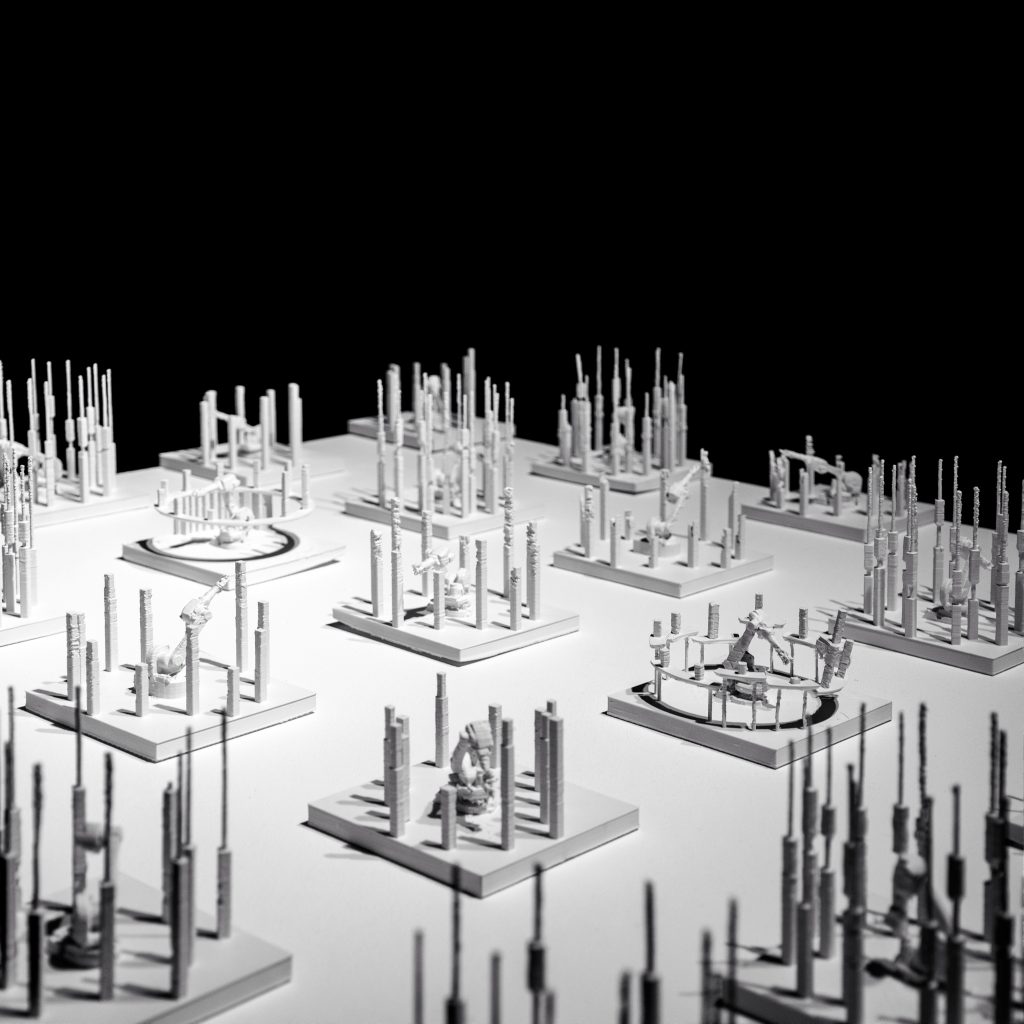
Program:
Day 1: Saturday, April 6th
- Introduction Lecture
- Python for Grasshopper tools
UN_Locking the Digital:
- Python recursion and subdivisions programming
- Python geometry / image outcomes
- Image translations / preparation for robotics
UN_Locking the Physical:
- ABB Robot introduction
- ABB image-toolpath and design layering for robot material edition
- ABB simulation for robot material edition
- ABB robot material edition setup & material edition-translation starting point
- Recording and finishing edition after session
- Q&A Design Follow-up
Day 2: Sunday, April 7th
- ABB simulation for robot choreography 3Dscanning
- ABB robot 3DScanning
- Photogrammetry processing
UN_Locking Speculations:
- Geometry speculations
- Matter speculations
- Outcomes processing
- Q&A Outcomes Session
Software:
- Rhinoceros 7 or 8 (30 Days trial)
- Rhino Grasshopper-Python (embedded in Rhinoceros)
- Rhino Grasshopper Plug-in Mesh+ (Free login in food for rhino)
- ABB RobotStudio (30 Days trial)
- RobotStudio only works for Windows. For Apple, Parallels is recommended (14 Days trial)
- Adobe Photoshop (7 Days trial)
- Adobe After Effects (7 Days trial)
- Agisoft Metashape (30 Days trial)
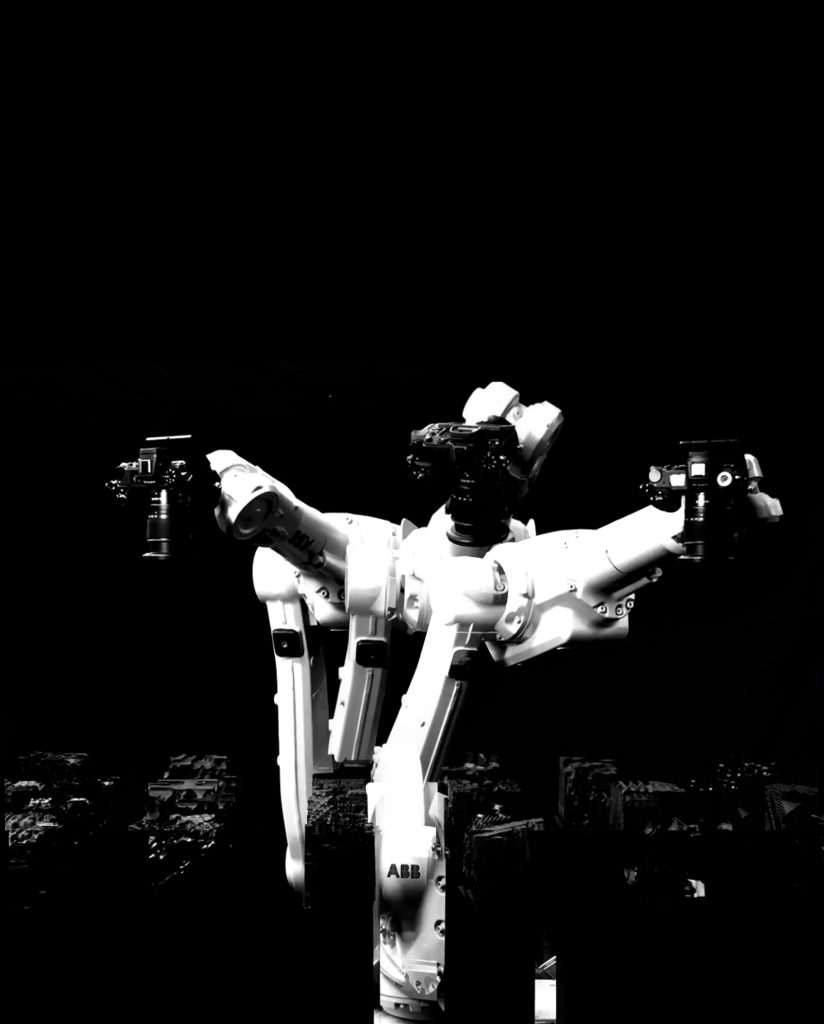
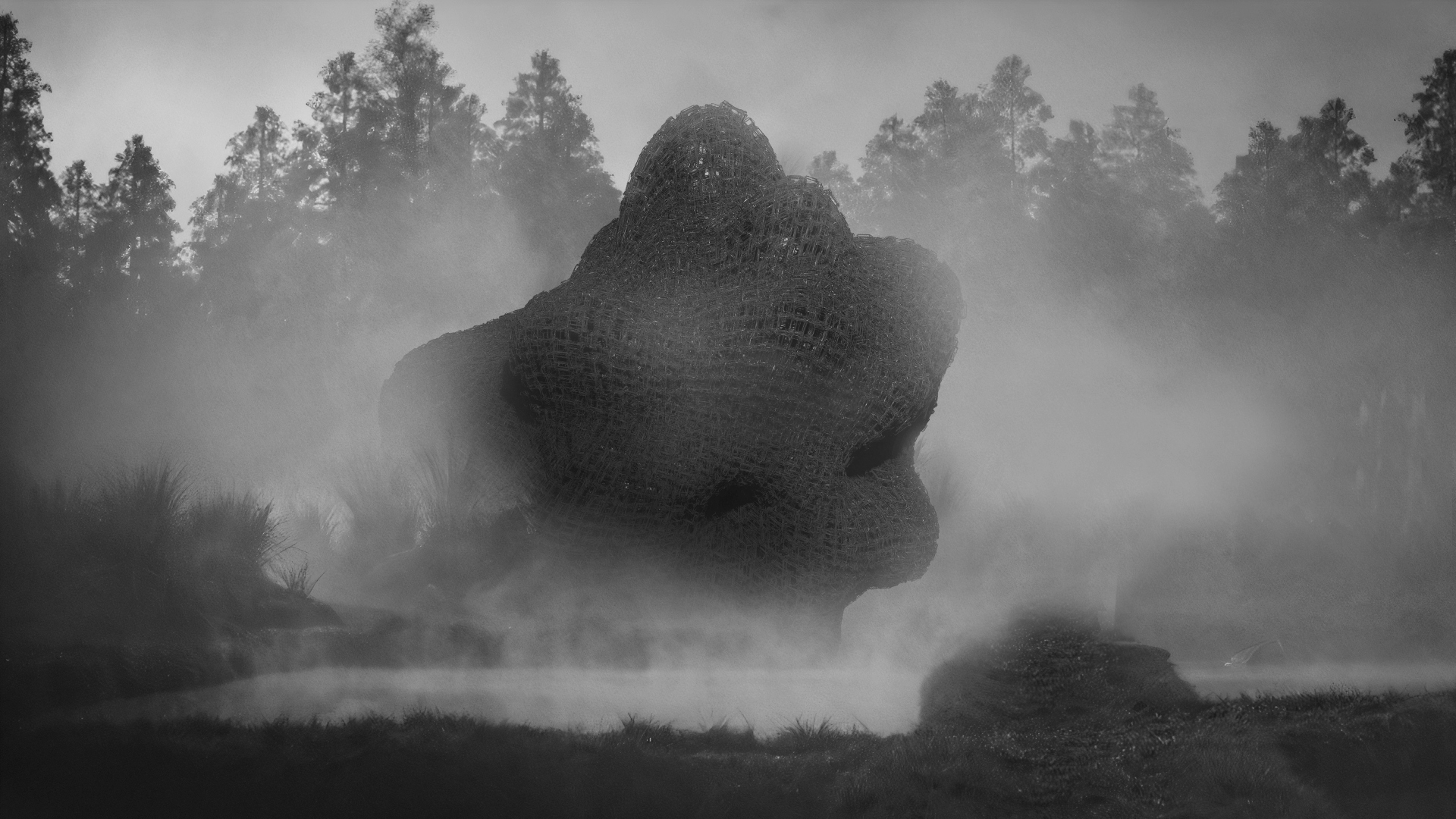
Instructor:
Daniela Atencio
Daniela Atencio Arch. M.DesR Architect / Master of Design Research in Emerging Systems, Technologies and Media) at SCI_Arc / Associate professor and researcher at the Universidad de Los Andes where she coordinates computational design courses / Her work covers topics of advanced technologies in architecture and design, representation, computational design, robotics in architecture (computer-controlled), published and/or exhibited by: Venice Architecture Biennale, the International Association for Robots in Architecture ROB | ARCH, Association for Computer Aided Design in Architecture (ACADIA, PA Parametric Architecture, DigitalFutures, Sociedad Iberoamericana de Gráfica Digital (SIGraDi), Ibero-American Biennial of Architecture and Urbanism, Routledge, among others. Author of the book Robotic Translations: Design Processes —Latin-America, to be published by ACTAR in 2024. Member of the Women in Robotics Association, among other related institutions. Along with Prof. Claudio Rossi, she started the first robotics course in undergraduate architecture in Latin America called Robot_Lab and founded the Videogames & Robots research group at Universidad de Los Andes. Lecturer and/or jury at SCI_Arc, UCLA, University of Melbourne, Pontificia Universidad Católica de Chile, Kent State University, Texas A&M, Universidad de Monterrey, among others.
Important Notes:
- The “UN_Locking Materiality: Python & Robotic Archeologies” Studio workshop by PAACADEMY will start on Saturday, 6th April 2024, at 17:00 (GMT).
- Total sessions: 2 Sessions
- The teaching duration per session will be 4 hours.
- Students will have time for a break between teaching hours.
- Each session and the entire studio will be recorded, and videos will be available for participants just a day after the class for unlimited time.
- PAACADEMY will provide a certificate of attendance.
- The studio has limited seats. Tickets are non-transferable & non-refundable. Please read carefully before you register.
Software Requirements:
System recommendations for Windows:
- 64-bit Intel or AMD processor (Not ARM)
- 8 GB memory (RAM) or more is recommended.
- 600 MB disk space.
- OpenGL 4.1 capable video card is recommended.
- 4 GB Video RAM or more recommended.
- A Multiple-button mouse with a scroll wheel is recommended.
System recommendations for IOS:
- Intel Mac
- 8 GB memory (RAM) or more is recommended.
- AMD graphics processor recommended on Intel Macs.
- 5 GB disk space.
- A Multiple-button mouse with a scroll wheel is recommended
- Parallels Installed with ABB RobotStudio.
Server and drive is required for files sharing during the session.
Topic: UN_Locking Materiality: Python & Robotic Archeologies
Date: April 6 – 7, 2024
Time: 17:00 – 21:00 GMT
Format: Online on Zoom
Duration: 2 Sessions (8 Hours)
Registration Deadline: April 5, 2024
Total Seats: 50 seats
Difficulty: Intermediate
Language: English
Certificate: Yes
General Registration: 90 EUR
Fee For Digital Members: 77 EUR (15% discount available only for Digital Members)
Organized By: PAACADEMY
Tutor: Daniela Atencio
Recordings: Recordings will be available for all participants afterward indefinitely.
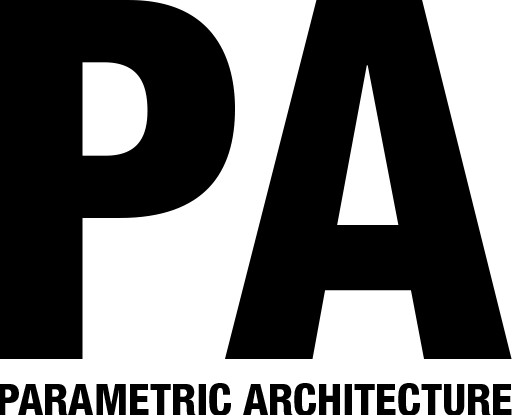



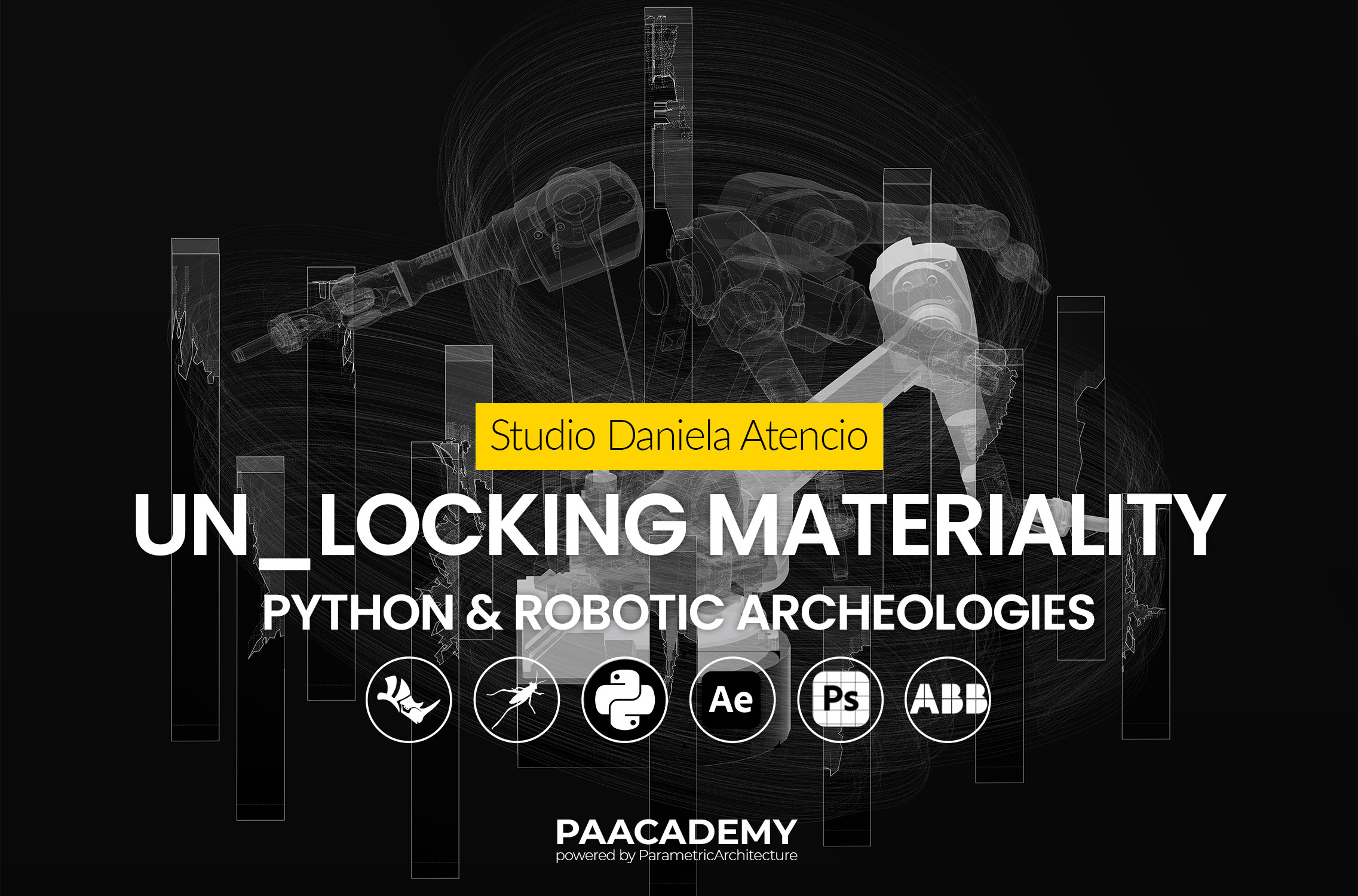
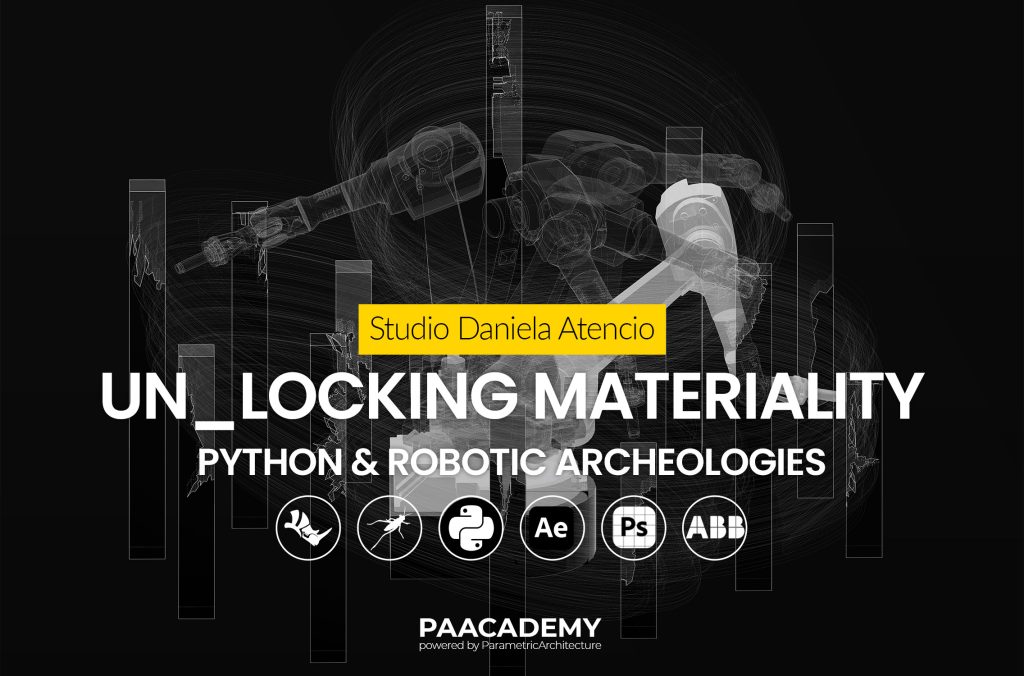
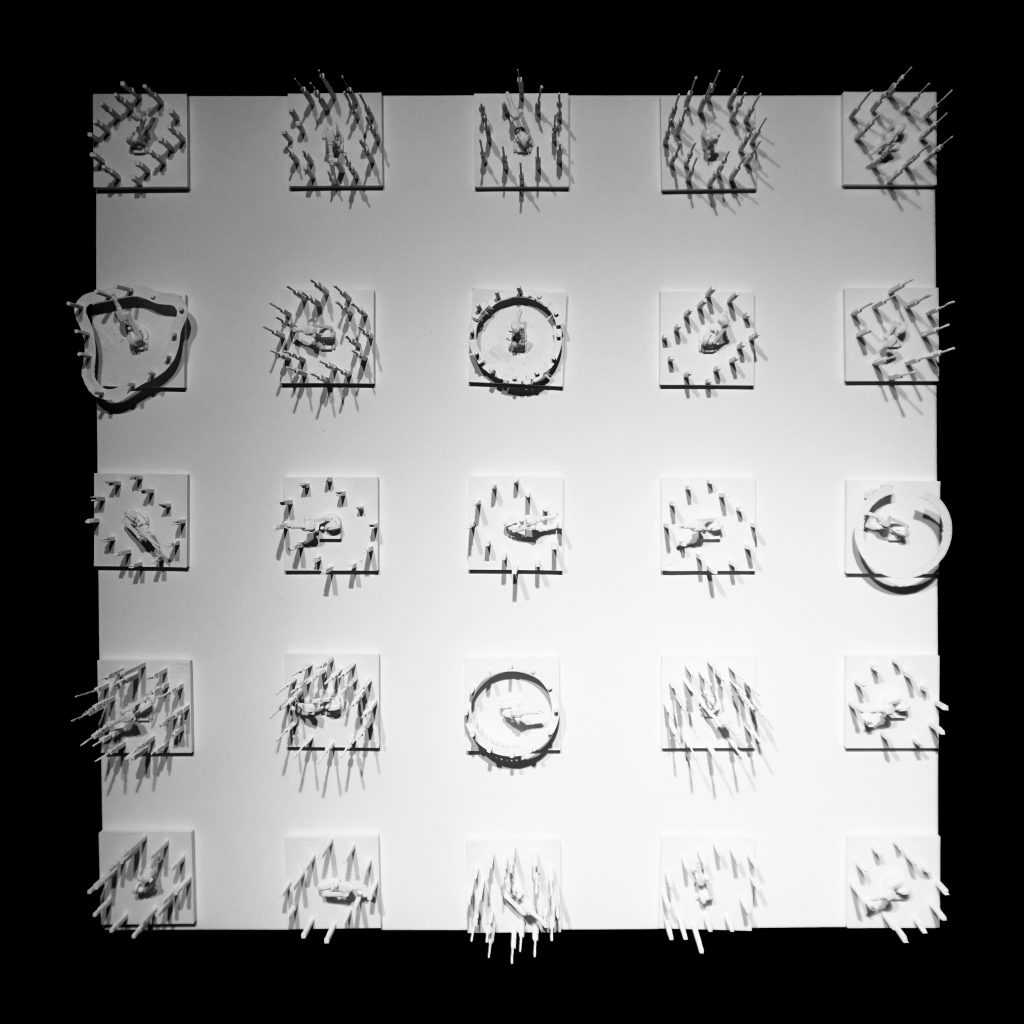
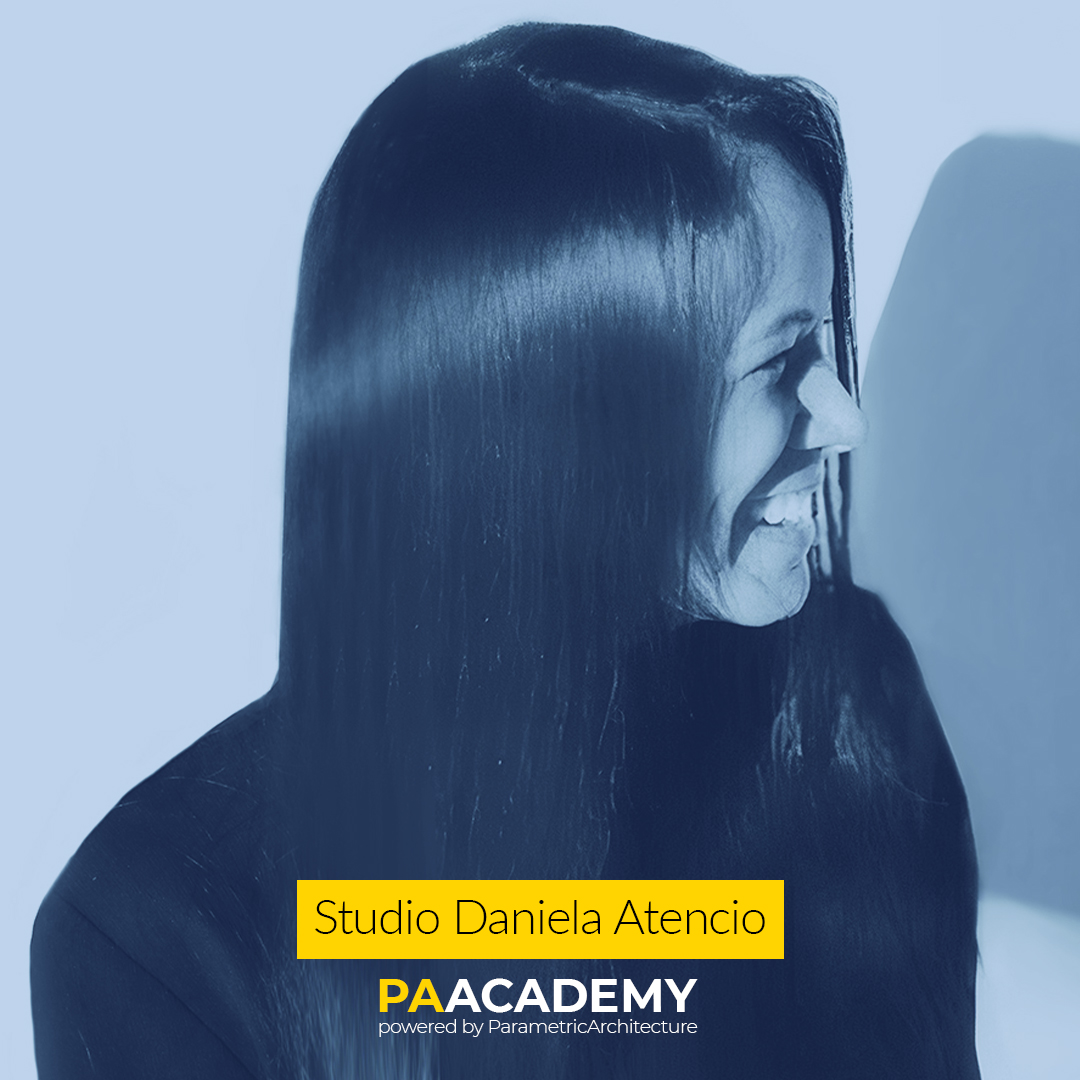
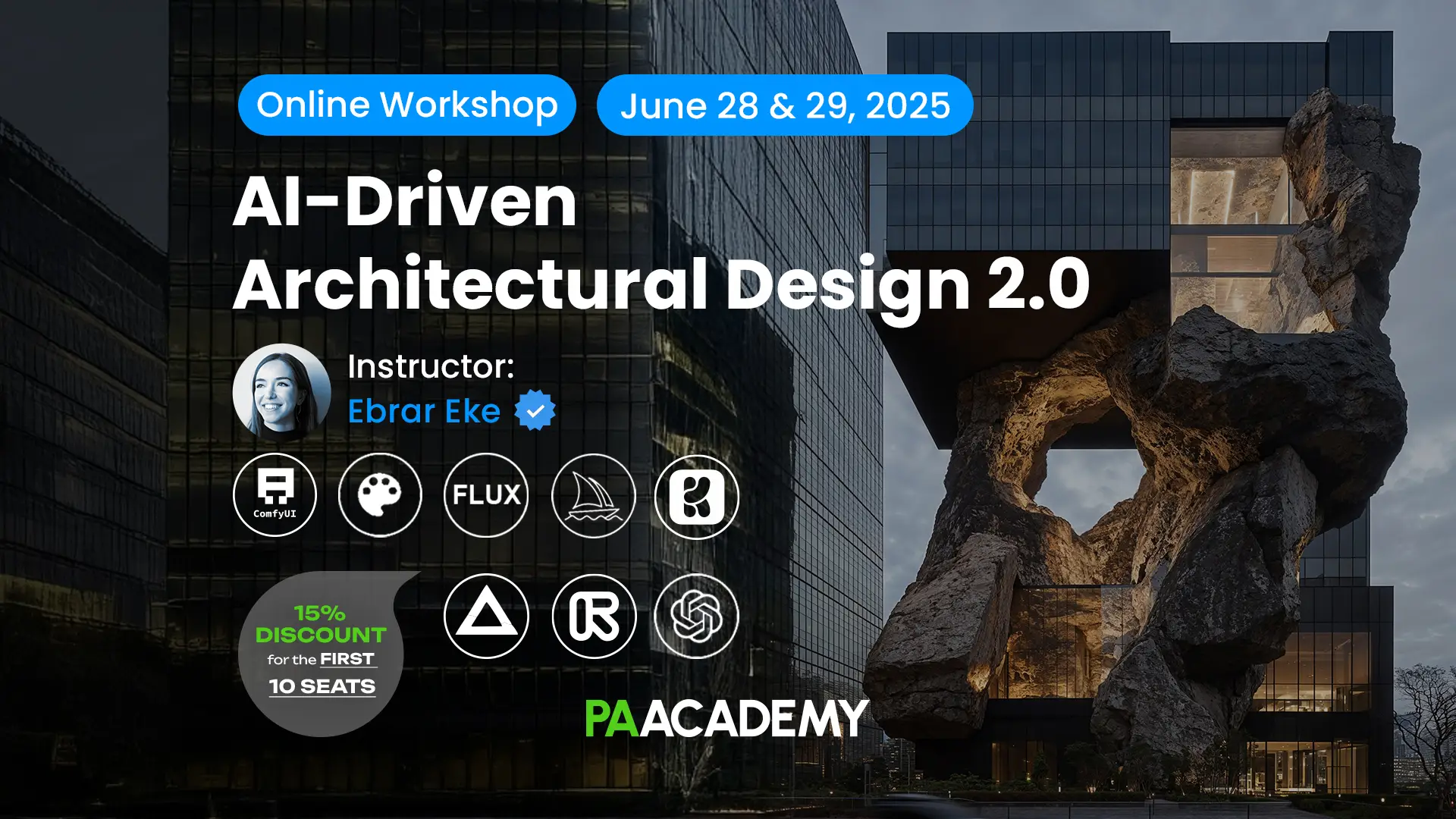
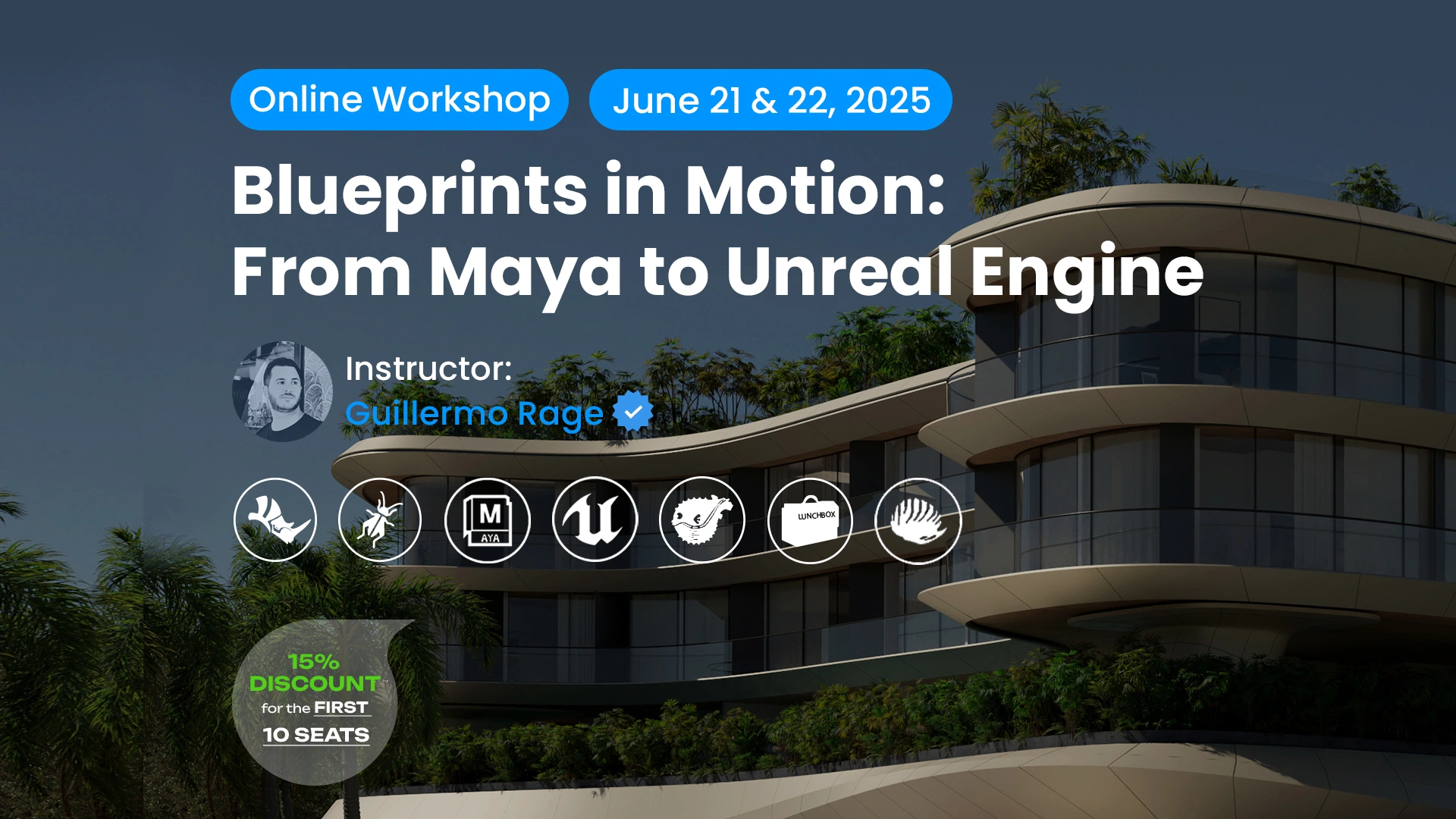
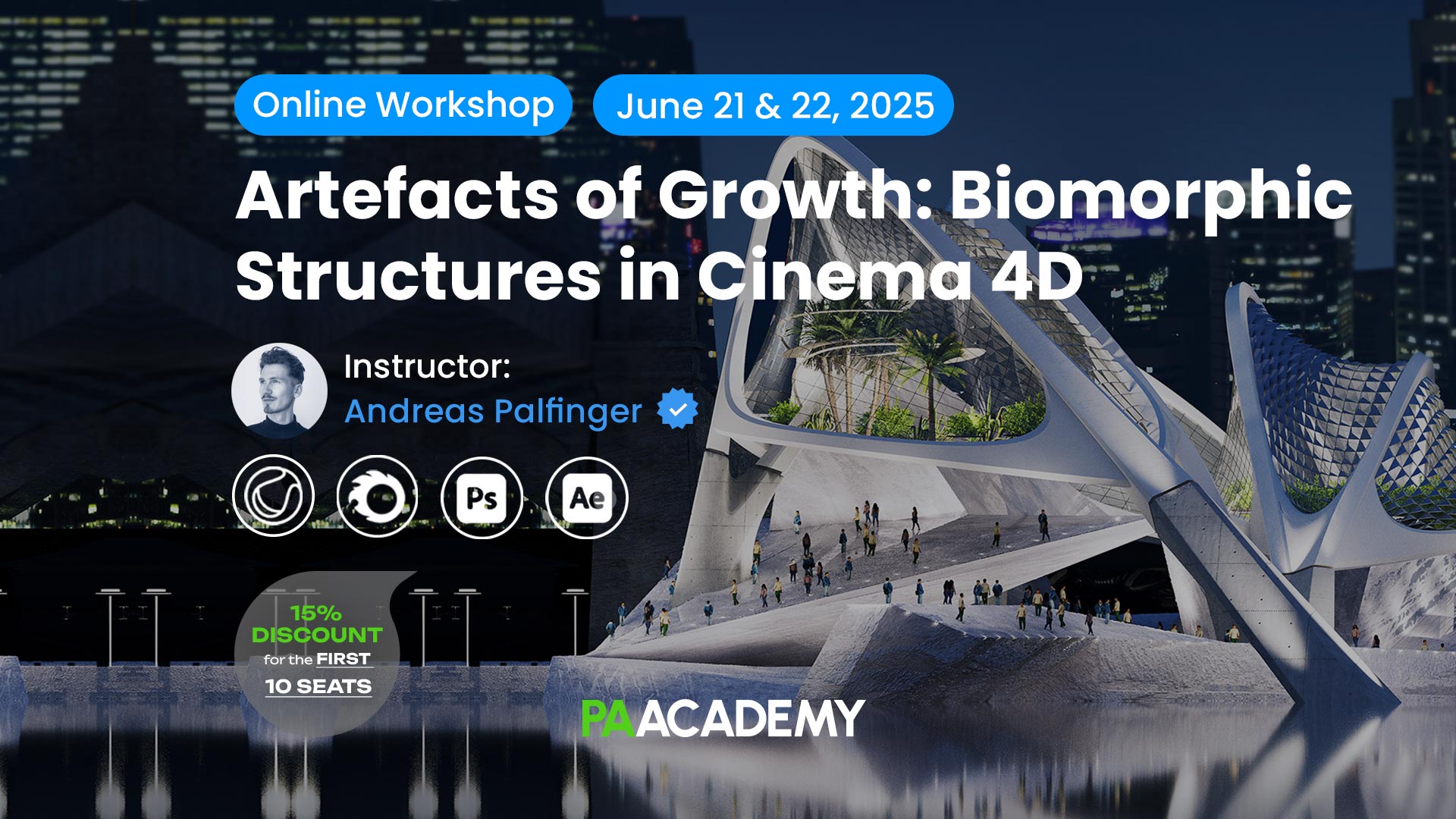
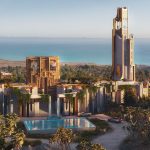
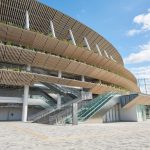
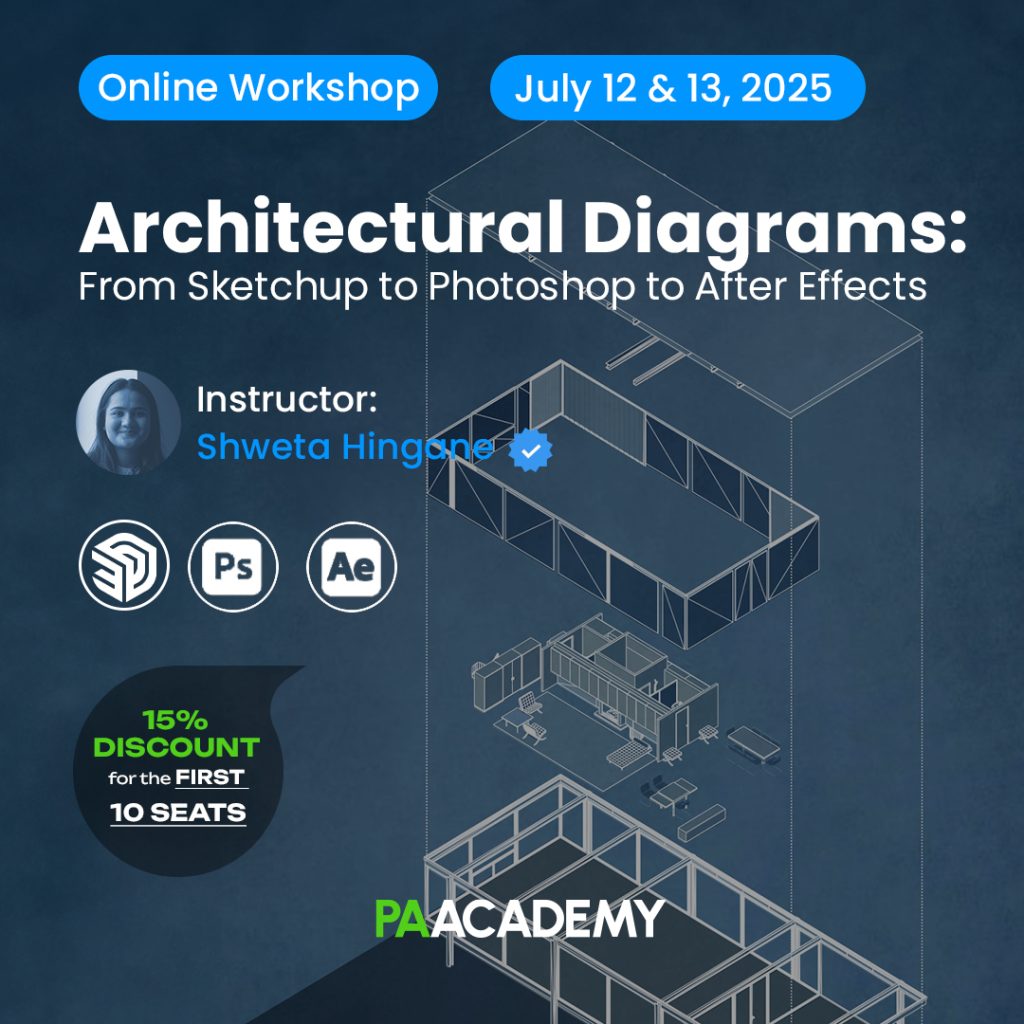
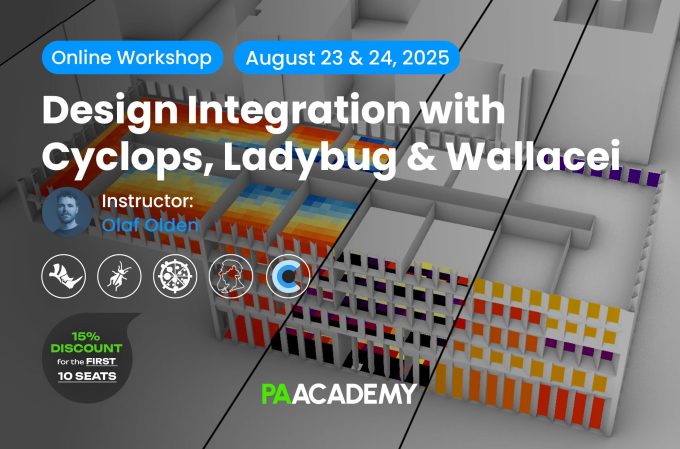
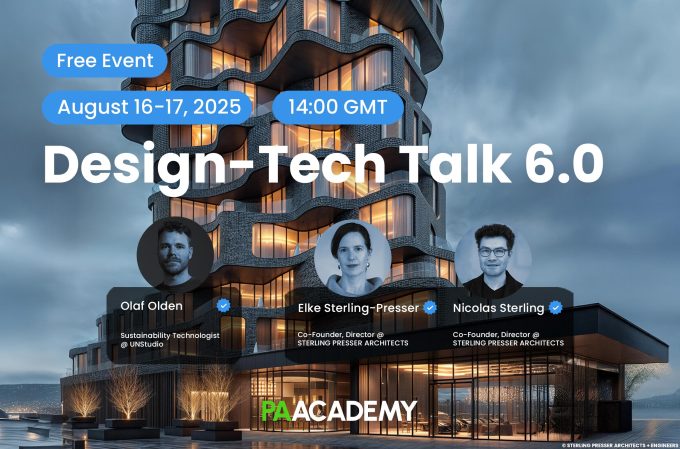
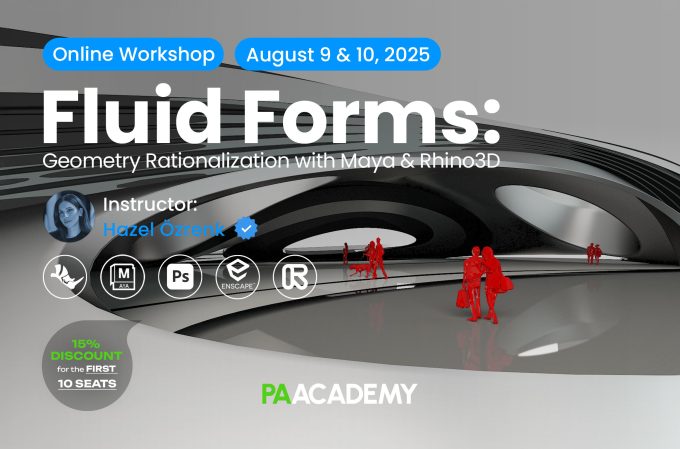
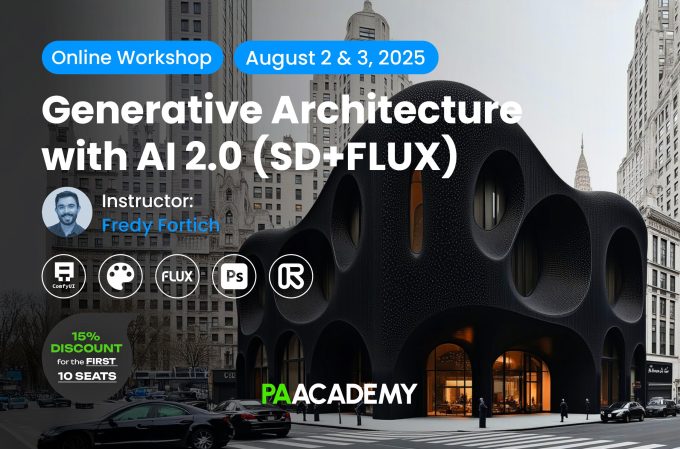




Leave a comment